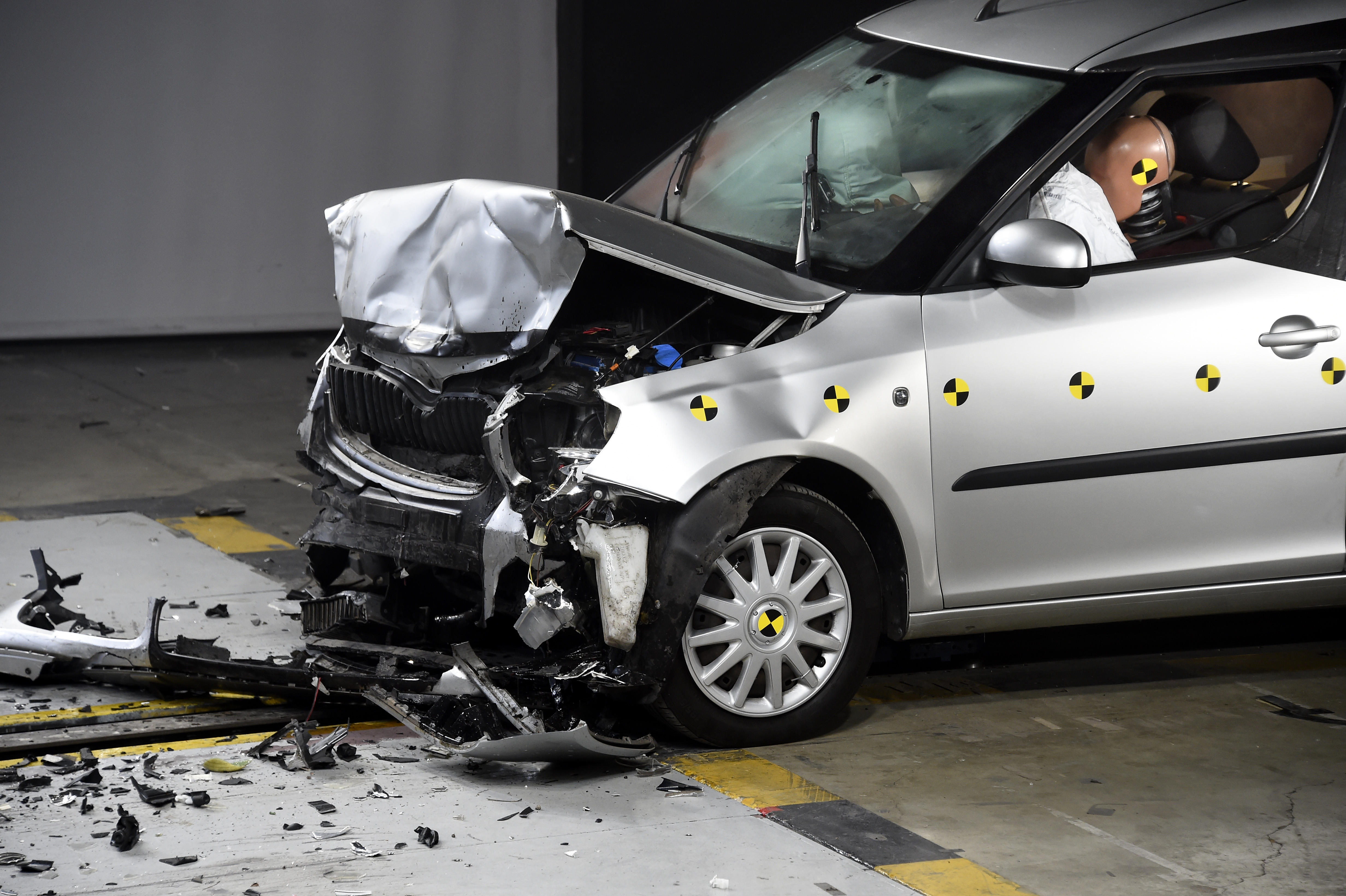Euro NCap discovers ‘suspicious’ parts fitted on crash test cars
Several carmakers reportedly submit vehicles with test-specific airbags and Isofix points

A free daily email with the biggest news stories of the day – and the best features from TheWeek.com
You are now subscribed
Your newsletter sign-up was successful
An investigation has been launched into car crash tests after examiners discovered “suspicious” parts on vehicles submitted for assessment.
Officials from the European New Car Assessment Programme (Euro NCap) and motoring safety experts Thatcham Research found airbags and Isofix child seat mounts marked “for crash test only”, Auto Express reports. The discoveries were made during routine audits that involve inspecting individual components on test vehicles.
Thatcham Research’s head of safety, Matthew Avery, told the magazine that test components are often labelled with messages written in marker pen. “It’s marked crudely,” he said. “Alarm bells ring when we see that.”
The Week
Escape your echo chamber. Get the facts behind the news, plus analysis from multiple perspectives.

Sign up for The Week's Free Newsletters
From our morning news briefing to a weekly Good News Newsletter, get the best of The Week delivered directly to your inbox.
From our morning news briefing to a weekly Good News Newsletter, get the best of The Week delivered directly to your inbox.
Avery added: “Sometimes we’ve tested a vehicle and we will see on the back of a module it says ‘Euro NCap test’. Airbag modules are quite common. That feels very, very suspicious to us.”
The markings have been found on vehicles from “several” manufacturers, he said, adding that when quizzed about the markings, many manufacturers claim the parts are early versions of genuine components.
According to financial news site This Is Money, Euro NCap and Thatcham Research are carrying out investigations that “can involve visits to car factories or parts suppliers.” In some instances, manufacturers are instructed to submit another vehicle for a retest.
However, fears of foul play have been dismissed by the Society of Motor Manufacturers and Traders (SMMT), a trade association for the UK’s motoring industry.
A free daily email with the biggest news stories of the day – and the best features from TheWeek.com
Mike Hawes, SMMT chief executive, said the markings are common on crash vehicles as many of them are submitting for testing “before full production begins”.
“There is no evidence of any malpractice in safety testing and to imply otherwise shows a failure to understand the manufacturing and certification process,” he insisted. “Such remarks cast unwarranted aspersions on the automotive industry, for which safety is the number one priority.”
-
 Political cartoons for February 7
Political cartoons for February 7Cartoons Saturday’s political cartoons include an earthquake warning, Washington Post Mortem, and more
-
 5 cinematic cartoons about Bezos betting big on 'Melania'
5 cinematic cartoons about Bezos betting big on 'Melania'Cartoons Artists take on a girlboss, a fetching newspaper, and more
-
 The fall of the generals: China’s military purge
The fall of the generals: China’s military purgeIn the Spotlight Xi Jinping’s extraordinary removal of senior general proves that no-one is safe from anti-corruption drive that has investigated millions
-
 Sport on TV guide: Christmas 2022 and New Year listings
Sport on TV guide: Christmas 2022 and New Year listingsSpeed Read Enjoy a feast of sporting action with football, darts, rugby union, racing, NFL and NBA
-
 House of the Dragon: what to expect from the Game of Thrones prequel
House of the Dragon: what to expect from the Game of Thrones prequelSpeed Read Ten-part series, set 200 years before GoT, will show the incestuous decline of Targaryen
-
 One in 20 young Americans identify as trans or non-binary
One in 20 young Americans identify as trans or non-binarySpeed Read New research suggests that 44% of US adults know someone who is transgender
-
 The Turner Prize 2022: a ‘vintage’ shortlist?
The Turner Prize 2022: a ‘vintage’ shortlist?Speed Read All four artists look towards ‘growth, revival and reinvention’ in their work
-
 What’s on TV this Christmas? The best holiday television
What’s on TV this Christmas? The best holiday televisionSpeed Read From films and documentaries to musicals for all the family
-
 Coco vision: up close to Chanel opticals
Coco vision: up close to Chanel opticalsSpeed Read Parisian luxury house adds opticals to digital offering
-
 Abba returns: how the Swedish supergroup and their ‘Abba-tars’ are taking a chance on a reunion
Abba returns: how the Swedish supergroup and their ‘Abba-tars’ are taking a chance on a reunionSpeed Read From next May, digital avatars of the foursome will be performing concerts in east London
-
 ‘Turning down her smut setting’: how Nigella Lawson is cleaning up her recipes
‘Turning down her smut setting’: how Nigella Lawson is cleaning up her recipesSpeed Read Last week, the TV cook announced she was axing the word ‘slut’ from her recipe for Slut Red Raspberries in Chardonnay Jelly